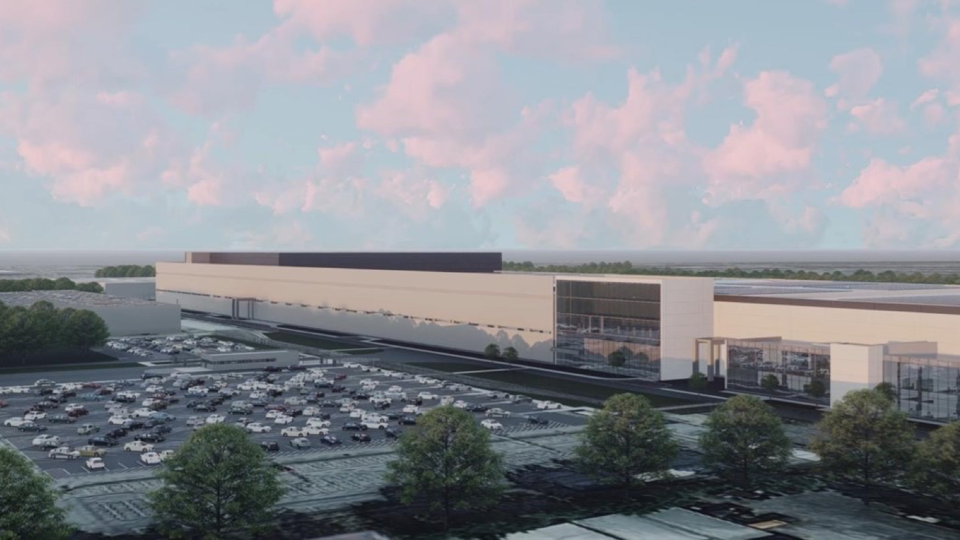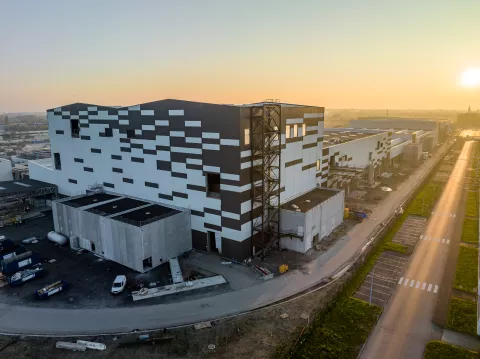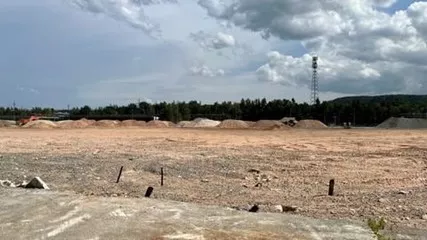The challenges of building the battery cell gigafactory in Kaiserslautern

ACC AIMS TO hire 2,000 EMPLOYEES BY 2030
28.6.2023
Posted on SWR by SEBASTIAN STOLLHOF (Südwestdeutscher Rundfunk)
It is a major project that is taking place on the Opel's factory premises in Kaiserslautern: Automotive Cells Company (ACC) is planning to build a battery cell gigafactory there. What are the biggest challenges along the way?
Excavators are still removing the floor slabs of the former factory halls on the Opel site. The ground work for the battery cell factory is scheduled to begin in August. Its scale can already be guessed at. "It will be a hall of immense proportions, about 700 by 100 meters and up to 28 meters high," says ACC Germany head Peter Winternheimer. Structural engineering work is then scheduled to start in October.
Mercedes-Benz also involved in Gigafactory
The Automotive Cells Company is a cooperation, a so-called joint venture of the automotive groups Stellantis (Peugeot, Opel) and Mercedes-Benz as well as Total Energies/Saft. "For us as a German location, it is of course important to have a German shareholder in Mercedes-Benz since last year," says Winternheimer.
PRODUCTION IN KAISERSLAUTERN TO START IN 2025
The first Gigafactory for batteries opened in France

A few weeks ago, the first of three plants was inaugurated in the north of France. However, it will probably take until the end of the year before the first battery cells roll off the production line there. However, the factory should nevertheless provide important insights for Kaiserslautern, emphasizes the ACC Germany boss.
Battery cell factory requires more electric power than all households in Kaiserslautern
There are still a number of challenges for the plant in Kaiserslautern. In the meantime, solutions have been found for a very important one, as Winternheimer says: the power supply. "Battery cell production is associated with a high energy requirement," says the ACC Germany boss. For example, the plant in Kaiserslautern will consume more electricity than all households in Kaiserslautern need. The approval process is currently underway, and issues such as water supply and wastewater are also being discussed. "The construction work should be completed by the middle of next year, so that we can then start installing the machines and equipment. After all, production is scheduled to go into operation at the beginning of 2025 as planned," says the head of Germany, giving an insight into the plans.
750 people to work at ACC in Kaiserslautern in 2025
At the start, 750 people will work at the Kaiserslautern site. "That's going to be the biggest challenge," says Winternheimer. This is because they are primarily looking for skilled workers, "especially skilled workers, electronics technicians, mechatronics technicians, but also chemical technicians". This means that from next year onwards, about 30 new employees will be hired per month. "It's going to be sporty," says the head of Germany. The hope is that it will also be possible to recruit personnel from companies in the region that are cutting jobs, such as BorgWarner in Kirchheimbolanden or Opel in Kaiserslautern.

Ground work for the Automotive Cells Company's battery cell factory on the Opel site in Kaiserslautern is scheduled to begin in August. You have to be creative here. "We have to make ACC an attractive employer for this," says Winternheimer. Production is to take place around the clock, even on weekends. "There is no blueprint for what we are planning here in Kaiserslautern," he emphasizes. It is also important to gain experience here. And to be open to some things. For example, when it comes to topics such as a canteen for employees. Here, for example, Winternheimer can imagine a joint canteen kitchen with surrounding companies.
Gigafactory to produce modules for around 600,000 electric vehicles
It will probably take until 2030 for all three planned production blocks on the 41-hectare site in Kaiserslautern to be completed. Then, in the "Gigafactory", as it is officially called, cells and modules for around 600,000 electric vehicles per year will be produced by around 2,000 employees. "For these, a corresponding housing market is also needed in and around Kaiserslautern," says Winternheimer. Currently, around 50 people are employed in Kaiserslautern.
The Automotive Cells Company High energy costs are a problem for the battery cell factory
What is also currently occupying him are the high energy costs. Winternheimer would welcome the industry award for energy-intensive companies, which is currently being discussed at the federal level. "It's also about competitiveness with other countries," he says. One of Europe's largest factories for battery cells and modules for electric cars would be built in Kaiserslautern. This is a great opportunity for the city, but also for the West Palatinate in general.
West of the Palatinate as a model region for electromobility?
"We have a strong university here in Kaiserslautern, we have a large number of institutes. I am of the opinion that we must use this to develop the West Palatinate into a model region for electromobility," says Winternheimer. Especially because there is still a lot to be done in the expansion of electromobility. "I don't yet see the appropriate measures that will allow us to be mobile with an electric car in ten years' time, let alone be able to charge the vehicles," said the ACC Germany boss. Solutions are needed here, ideas are needed here.
Will suppliers for the battery cell factory also settle in and around Kaiserslautern? Peter Winternheimer is still cautious: "We are building three locations in France, Kaiserslautern and Italy. For the time being, the purchase of raw materials is centralized and should cover all three locations equally." In addition, raw materials needed for battery cell production are not to be found in the region. However, there are isolated discussions, for example with manufacturers of additives for cell production. "Here, however, we are still relatively at the beginning and will certainly first fall back on the suppliers that our purchasing department has commissioned for the first plant in France," says Winternheimer.